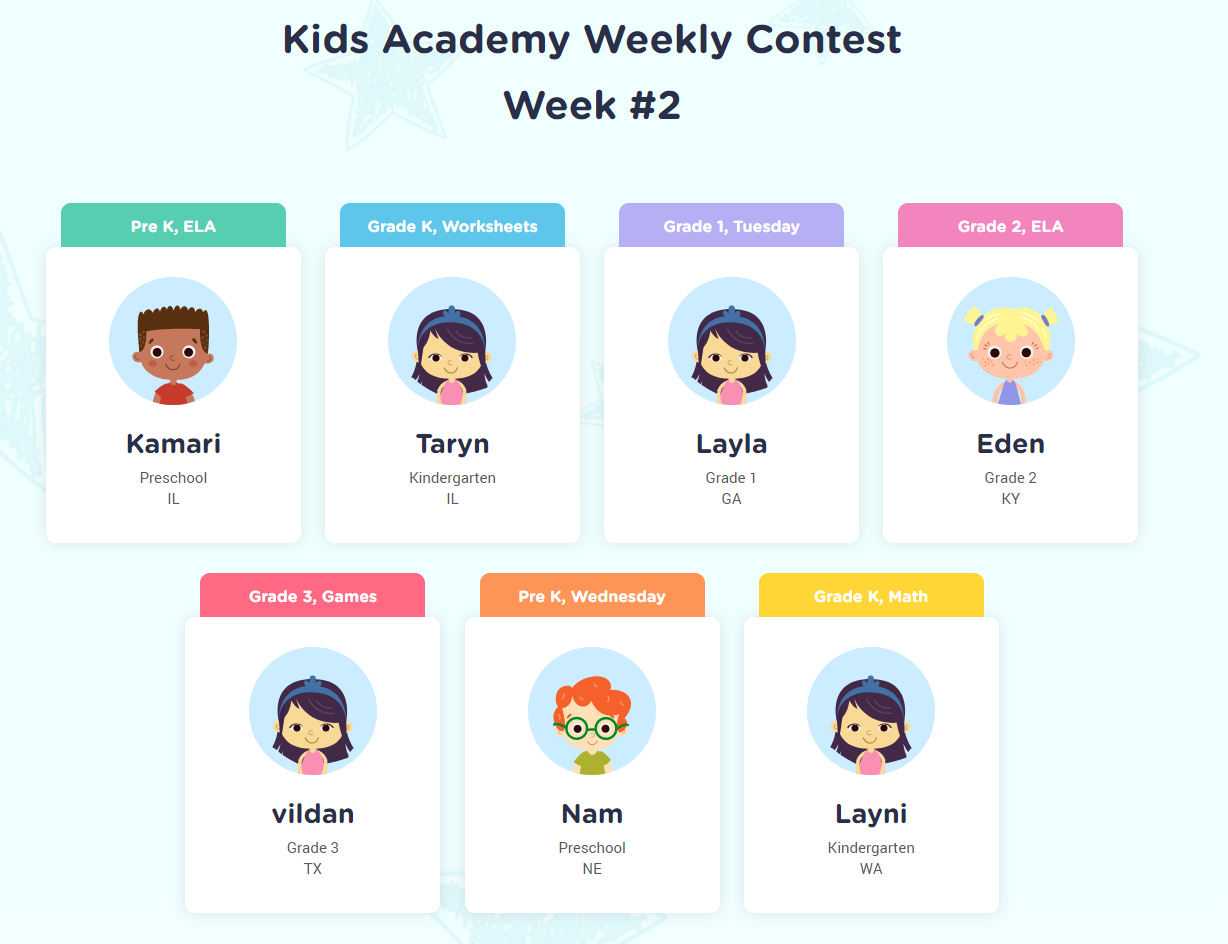Shape identification Extra Challenge Worksheets for Ages 8-9
4 filtered results
-
From - To
Challenge your child's geometry skills with our Shape Identification Extra Challenge Worksheets designed for ages 8-9 at Kids Academy! These engaging worksheets offer advanced exercises that enhance spatial reasoning and critical thinking. Perfect for young learners, the activities include identifying, comparing, and analyzing various shapes. Introduce your child to intricate polygons, three-dimensional figures, and complex patterns in a fun, interactive way. Each worksheet is crafted to stimulate curiosity and provide a solid foundation in geometry. Ideal for classroom use or additional home practice, our printable worksheets support continued academic growth and confidence in mathematical abilities.ownload them today!
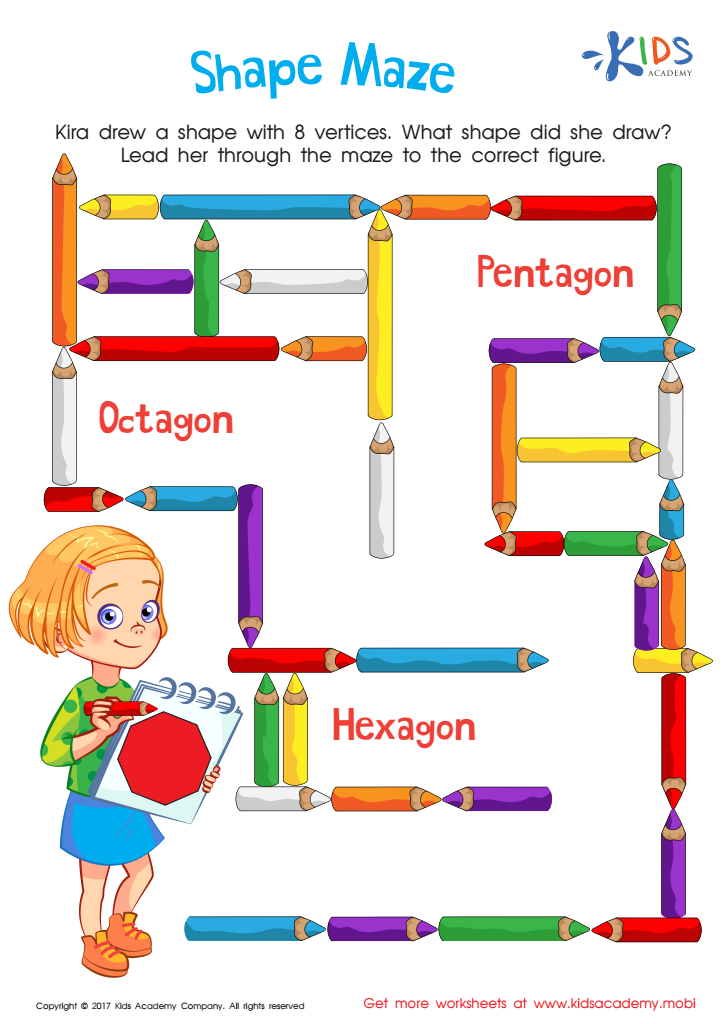

Shape Maze Worksheet
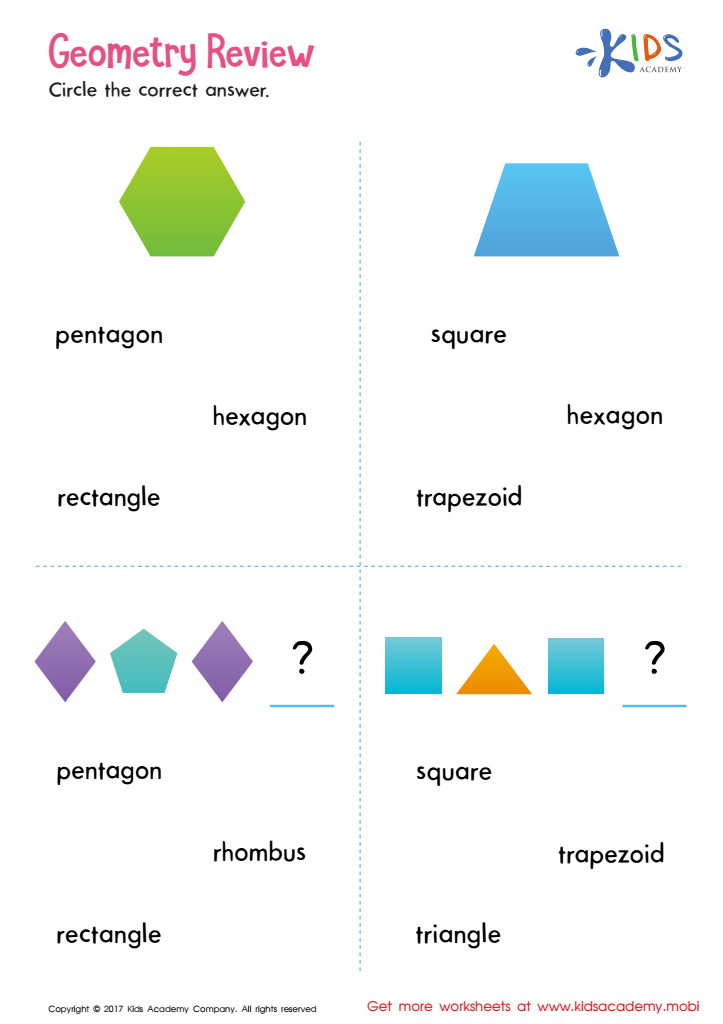

Geometry Review Printable
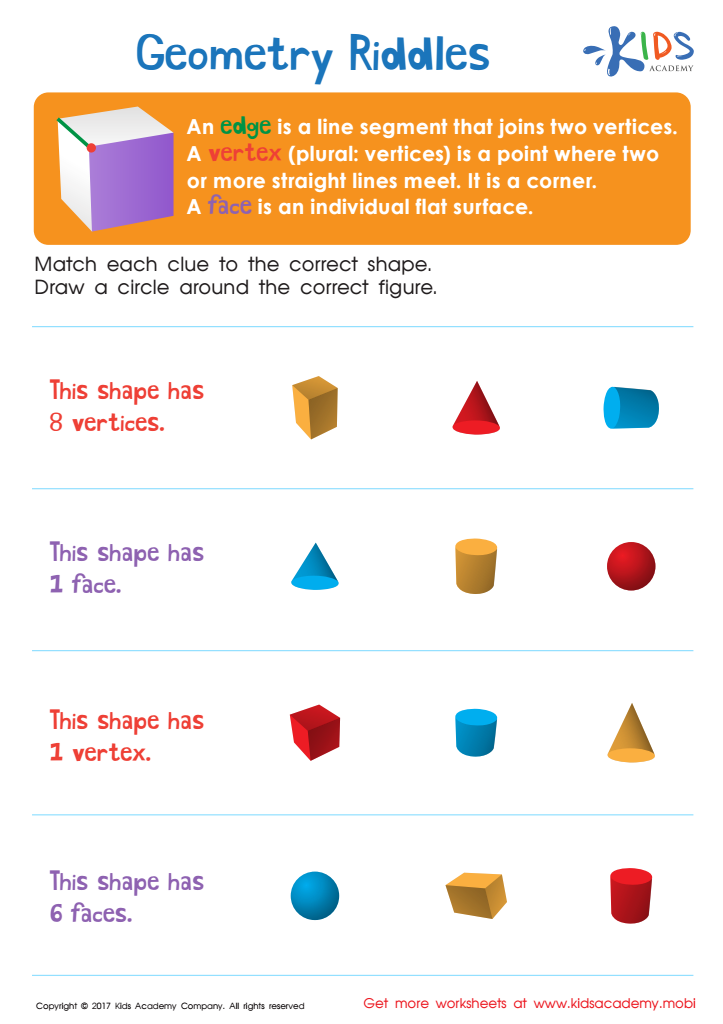

Geometry Riddles Printable
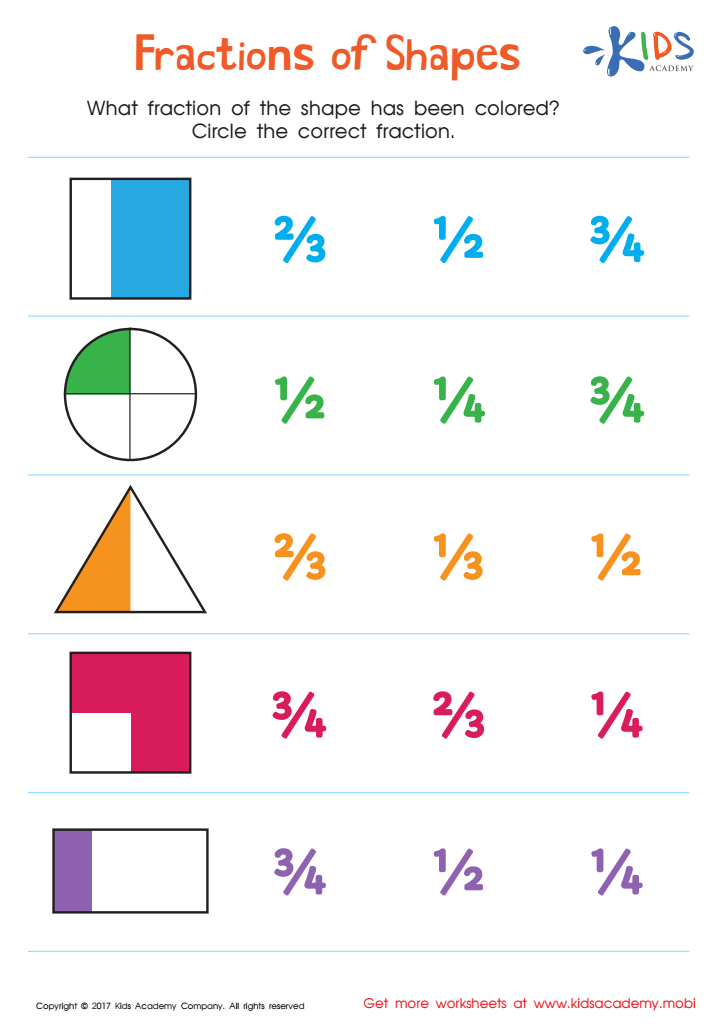

Fractions of Shapes: Math Concept Worksheet
Shape identification is a crucial skill in the cognitive development of children, and providing an extra challenge in this area for ages 8-9 holds significant importance. At this stage, children are transitioning from basic recognition to deeper analytical thinking. Introducing extra challenges helps refine their spatial awareness, an essential component in subjects like math, science, and art.
Firstly, mastering different shapes enhances geometric reasoning, a fundamental aspect of mathematics education. It aids in understanding symmetry, measurement, and spatial organization, forming a strong foundation for advanced mathematical concepts. Furthermore, shape identification ties into problem-solving skills. When children encounter complex problems, recognizing patterns and shapes can lead to effective solutions.
In addition, challenges in shape identification can bolster visual-perceptual skills, benefiting activities like reading and writing. For instance, distinguishing between different letters and numbers—a skill rooted in recognizing shapes—improves literacy.
Socially, these skills promote creativity and confidence. When children successfully identify and work with shapes through games and collaborative projects, they experience a sense of accomplishment that boosts their self-esteem.
Lastly, an extra challenge ensures that children remain engaged and motivated. It prevents boredom and encourages perseverance, setting them up for lifelong learning. Therefore, both parents and teachers should prioritize shape identification challenges to support holistic development.

 Assign to My Students
Assign to My Students









